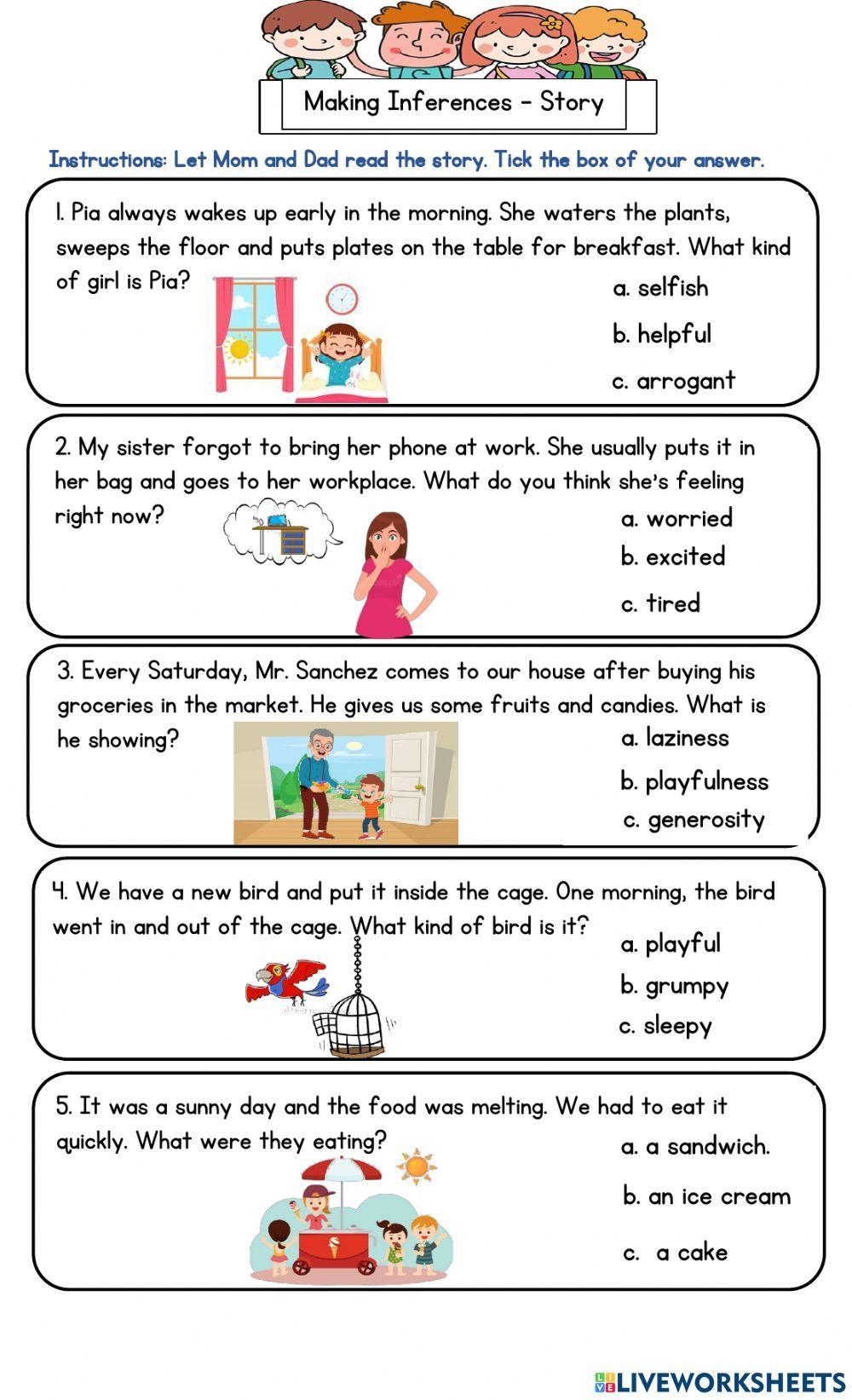When it comes to reading comprehension, the ability to make inferences is a crucial skill. Inferences are conclusions or interpretations drawn from evidence and reasoning, rather than directly stated information. In educational settings, inferences worksheets are commonly used to help students practice and develop this skill. These worksheets often present students with passages or scenarios where they must make logical deductions based on the information provided.
By working on inferences worksheets, students can improve their critical thinking and analytical skills. They learn to read between the lines, make connections, and draw conclusions based on context clues. This skill is not only important for academic success but also for real-life situations where one must make informed decisions based on incomplete information.
Inferences Worksheets
One common type of inferences worksheet involves reading a passage and answering questions that require students to make logical deductions. For example, students may be asked to infer a character’s feelings based on their actions or to predict what will happen next in a story. Another type of worksheet presents students with a scenario or problem that requires them to make inferences to solve it. These exercises can be challenging but are valuable in honing students’ ability to think critically and make informed decisions.
Inferences worksheets can also be used across various subjects, including language arts, science, and social studies. In language arts, students may be asked to make inferences about the author’s purpose or the theme of a text. In science, they may need to infer the outcome of an experiment based on data, while in social studies, they may have to make inferences about historical events or cultural practices. This interdisciplinary approach helps students see the relevance of making inferences in a wide range of contexts.
Teachers often use inferences worksheets as part of a larger lesson on reading comprehension or critical thinking skills. These worksheets can be completed individually, in small groups, or as a whole class activity. By providing students with opportunities to practice making inferences in a structured way, teachers can support their development of this important skill and help them become more proficient readers and thinkers.
In conclusion, inferences worksheets are valuable tools for developing students’ critical thinking and analytical skills. By engaging with these worksheets, students learn to make logical deductions, draw conclusions, and think critically about the information presented to them. Incorporating inferences worksheets into lessons across various subjects can help students see the practical applications of this skill and prepare them for success in both academic and real-world settings.
